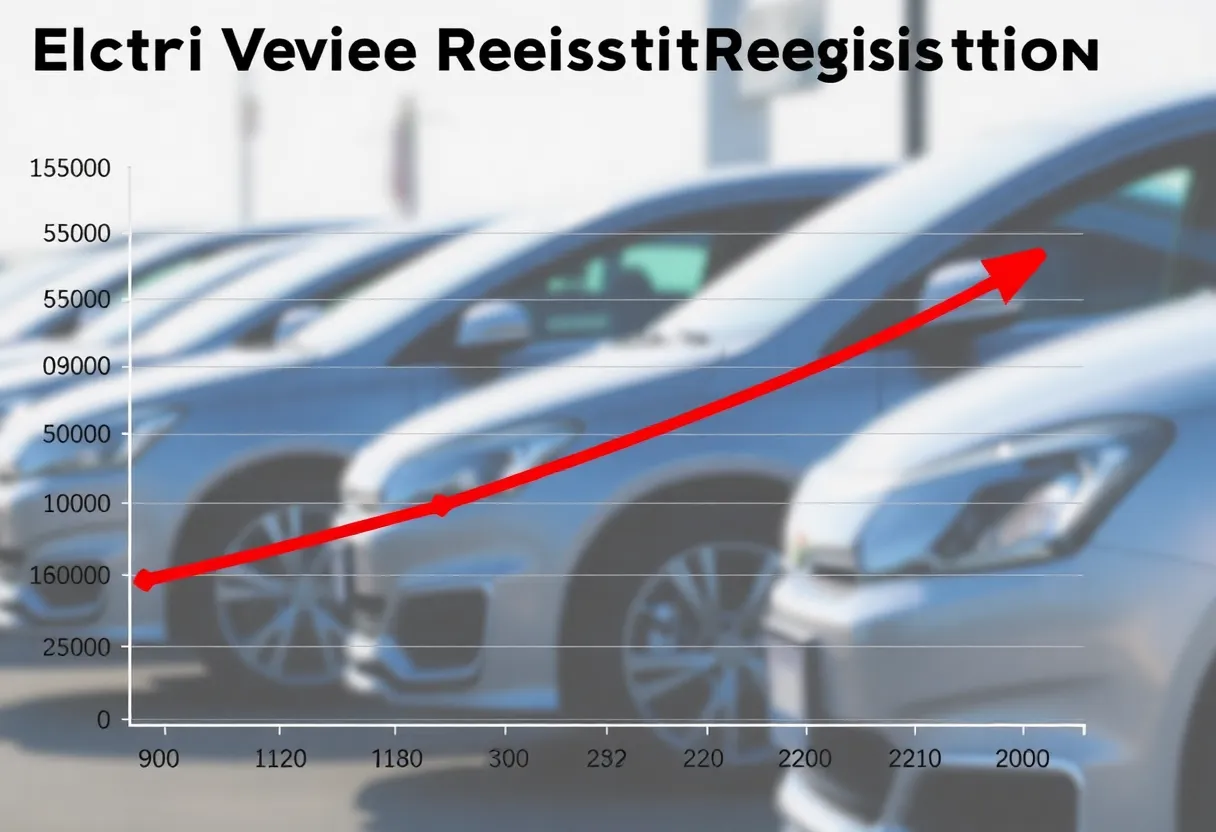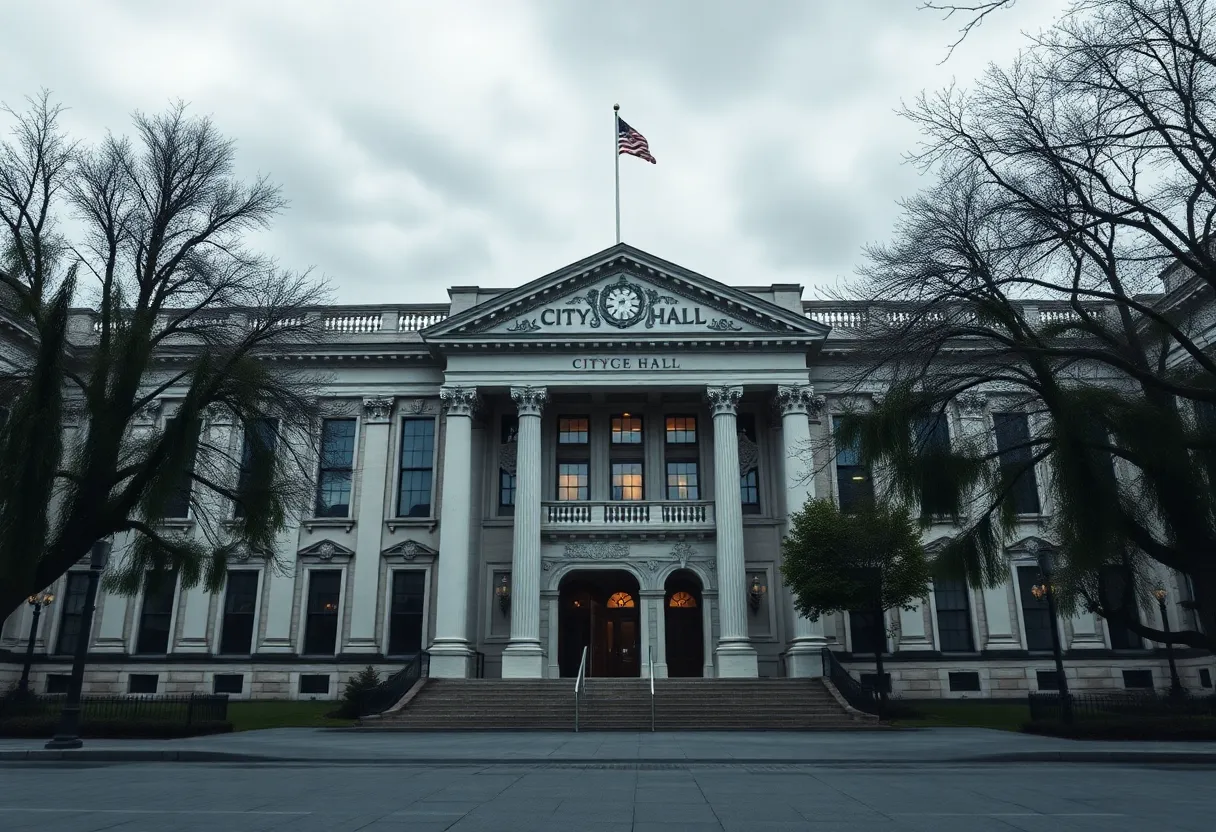News Summary
Tesla experienced a significant 21% decline in vehicle registrations in California during Q2 2023, marking the seventh consecutive quarterly drop. With a total of 41,138 registrations, the decline reflects growing competition from hybrid vehicles and a shift in consumer preferences. This downturn raises concerns for Tesla’s future, especially with the expiration of federal EV tax credits on the horizon. Despite the setbacks, the Model 3 remains popular, although it faces increasing competition from traditional combustion models. Overall, Tesla’s market position is under pressure amid changing dynamics.
California witnessed a considerable decline in Tesla’s vehicle registrations during the second quarter of 2023, with a drop of 21% compared to the previous year. In total, 41,138 Teslas were registered in the state from April to June, down from 52,119 in the same period of 2022. This marks Tesla’s steepest decline in over two years and the seventh consecutive quarterly drop in California, a significant setback for the automaker given that the state is crucial to its overall sales.
California constitutes approximately one-third of all electric vehicle (EV) sales in the United States, making its performance essential for Tesla’s market presence. As the state is known for leading the transition to clean energy and electric vehicles, any decline in sales poses a significant challenge to Tesla’s future prospects. During the same quarter, the overall share of zero-emission vehicles in California reduced from 22% to 18.2%, indicating a broader trend affecting the electric vehicle market.
The dip in Tesla’s sales aligns with a notable rise in hybrid vehicle registrations in California, which surged by 54% in the same time frame. Hybrids now account for close to 20% of the state’s vehicle market. Legacy automakers such as Toyota, Honda, Ford, Chevrolet, BMW, and Mercedes-Benz are stepping up their game with competitive EV models, capturing valuable market share previously held by Tesla. This emerging competition is evidently affecting Tesla’s once-dominant market position in California.
Historically, Tesla’s Model 3 and Model Y have represented over 60% of all EV sales in California. However, the latest sales figures indicate a shift in market dynamics. Furthermore, Rivian, another electric vehicle manufacturer, reported a 29% drop in registrations for the same quarter within California, highlighting similar challenges faced by newer entrants in the EV space.
The upcoming expiration of federal EV tax credits in September 2025 could also have detrimental effects on Tesla’s sales. As California regulators evaluate potential changes to EV policies, the advantages Tesla has leveraged in the past may diminish, raising further concerns for the company amidst growing market competition.
In addition to market dynamics, Tesla’s leadership under Elon Musk has raised eyebrows due to his political engagement and social commentary, which some analysts suggest may have alienated certain segments of Tesla’s core customer base in California. Despite the downward trend, the Tesla Model 3 remains one of the top-selling vehicles in the state, though it faces increasing competition from traditional combustion models like the Toyota Camry and Honda Civic.
Year-to-date statistics reveal that Tesla registrations have fallen by 18.3%, contrasting sharply with competitors like Honda, which saw a 9.9% growth, and Toyota, which increased by 8.5%. In addition, Tesla recorded only 3,622 registrations for its highly anticipated Cybertruck in the first half of 2023, showing that consumer interest may not be translating into sales as the company had hoped.
In terms of stock performance, Tesla’s shares have also declined by over 12% this year, as investors shift their focus toward potential future ventures, including robotaxis and advancements in artificial intelligence technology, rather than the company’s current standing in the market. Analysts are now predicting a challenging earnings report for Tesla, citing falling global deliveries and a decrease in regulatory credit sales as primary factors influencing their outlook.
The shift in consumer preferences in California signals an increasing importance placed on practicality, affordability, and diversity among EV brands by buyers. As competition heats up and the market landscape evolves, Tesla faces the critical challenge of adapting to these changing consumer demands to regain its foothold in one of its most crucial markets.
Deeper Dive: News & Info About This Topic
- Reuters
- Bloomberg
- Fortune
- Quartz
- Mercury News
- Wikipedia: Electric Vehicle
- Encyclopedia Britannica: Electric Vehicle
- Google Search: Tesla California sales decline
- Google Scholar: Tesla market share California
- Google News: Tesla California sales news

Author: Anaheim Staff Writer
The Anaheim Staff Writer represents the experienced team at HEREAnaheim.com, your go-to source for actionable local news and information in Anaheim, Orange County, and beyond. Specializing in "news you can use," we cover essential topics like product reviews for personal and business needs, local business directories, politics, real estate trends, neighborhood insights, and state news affecting the area—with deep expertise drawn from years of dedicated reporting and strong community input, including local press releases and business updates. We deliver top reporting on high-value events such as major conventions at the Anaheim Convention Center, including NAMM and VidCon, exciting games at Angel Stadium and Honda Center, and developments at Disneyland Resort Our coverage extends to key organizations like the Anaheim Chamber of Commerce and Visit Anaheim, plus leading businesses in hospitality, entertainment, and innovation that power the local economy As part of the broader HERE network, including HERECostaMesa.com, HEREHuntingtonBeach.com, HERESantaAna.com, and HERELosAngeles.com, we provide comprehensive, credible insights into Southern California's dynamic landscape.




